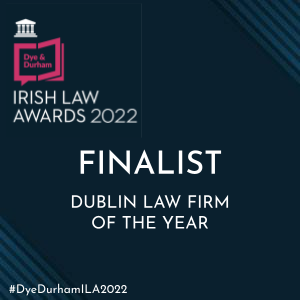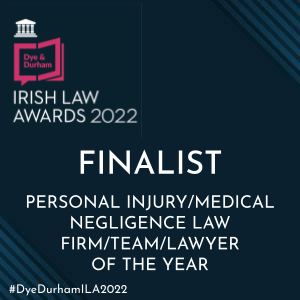Guide to Legal Costs for Personal Injury Cases

The potential cost of legal fees for making a claim for personal injuries can be a source of worry for many people. Therefore, we have compiled a guide to relieve this stress. The potential different Legal Costs that can be incurred for Personal Injury Cases have been illustrated.
What is a ‘Section 150 letter’?
A Section 150 letter is a legal obligation of Solicitors to send a letter setting out the basis of how the client will be charged. Furthermore, what those fees are likely to be. It is important for your Solicitor to clearly explain the basis upon which they will bring a claim on your behalf. Additionally, what the possible legal costs and fees might be.
‘No win no fee’ explained
- ‘No win fee’ means that if you are unsuccessful in the case. You will not have to pay your own solicitor or barristers for their fees. However, you may have an order made against you to pay the defendant’s legal fees. Most personal injury claims are taken by Solicitors on the basis of a ‘no win no fee’ arrangement.
- Therefore, it is important that the strengths and weaknesses of a potential claim are discussed before a claim is commenced. This is so that a case is only brought if it has a good chance of success.
How is the amount of compensation determined?
- All claims for personal injuries (with the exception of claims for medical negligence) must be lodged in the Injuries Board. The Injuries Board determine the amount of compensation that should be paid to the claimant based on the medical reports which were obtained for the case.
- If either of the parties disagrees with the level of compensation awarded by the Board, the assessment is deemed rejected. The Injuries Board will then release the claim. Compensation can then be pursued through the court system by issuing court proceedings.
What you need to consider with the offer from the Injuries Board
- If the case is resolved at the Injuries Board stage, The Board will not award you the cost of your legal fees. These costs will be paid from your compensation.
- Before you decide whether or not to accept the assessment of compensation made by the Board, your Solicitor will calculate the legal fees incurred to that point. This is so you can be aware of what compensation would be left over after costs are paid.
- It is important to be aware that whether your case settles at the Injuries Board stage or whether your case settles after you have issued court proceedings. Solicitors’ fees cannot be calculated as a percentage of any award or settlement. The fees calculated must be based on of the work carried out and time spent in relation to your file.
Court proceedings regarding cases of a catastrophic or life-changing injury
- Typically, in the case of a catastrophic or life-changing injury, the Injuries Board automatically release the claim to be dealt with by the court system. This is due to it being too complicated of a matter for them to assess.
- If court proceedings are issued on your behalf, then additional legal costs which include fees for the solicitors and barristers as well as the cost of medical reports and expert witnesses will be incurred.
- Most cases settle before going to trial and are settled on the basis that the claimant’s costs are paid by the Defendant however there are usually some shortfalls in the amount that the Defendant will pay for the experts’ fees and cost of medical reports. Those shortfalls are usually paid from the claimant’s compensation.
“All in” settlements explained
‘All in’ settlements mean that the defendant makes a single offer that includes your compensation and the legal fees and costs of the case. In this instance, it is very important that the solicitor tells the claimant what the figure for those legal fees and costs will be before a decision is made on whether or not to accept the offer so you will know how much of the compensation will be left over for you.
What are ‘party and party’ costs?
- These are the costs and fees incurred by your solicitor and barrister when dealing with the other party in connection with your court proceedings. This includes all the preparatory work generally and all correspondence and meetings with the Defendants, Court motions, attendance at court, briefing and engaging expert witnesses, and all work dealing with your court proceedings.
- If the defendant agrees in the settlement terms to pay the claimant’s costs or is ordered to do so by the trial Judge, they are responsible for what is known as the party and party costs.
- The amount of these costs and fees are negotiated on your behalf with the defendant’s solicitors and you should be made aware of any shortfalls in those costs (which can often relate to the fees of the expert witnesses) which will need to be paid from your compensation.
What are Solicitor/Client charges?
- Solicitor / Client charges are the costs associated with bringing the claim which cannot be recovered from the defendant at the end of the case.
- An example of solicitor/client charges are the fees for the work done by the Solicitor lodging the claim in the Injuries Board which did not settle at that stage.
- If the solicitor intends to charge their client for these fees, they must raise a bill detailing what work the fees are for and how the amount is calculated.
- The claimant should be made aware of any such charges before settling their case in the same manner as expected shortfalls in the party and party costs as already outlined.
How can we help as McMahon Goldrick Solicitors?
At McMahon Goldrick Solicitors, we exclusively act for individuals who have suffered life-changing injuries such as spinal cord injuries, brain injuries, and injuries sustained at birth. If you or a family member has suffered such an injury and would like to discuss a possible case, we would be delighted to meet with you.
For more information regarding the duration of Personal Injury Cases and the Personal Injury claim process see our Guide to Personal Injury claims.



